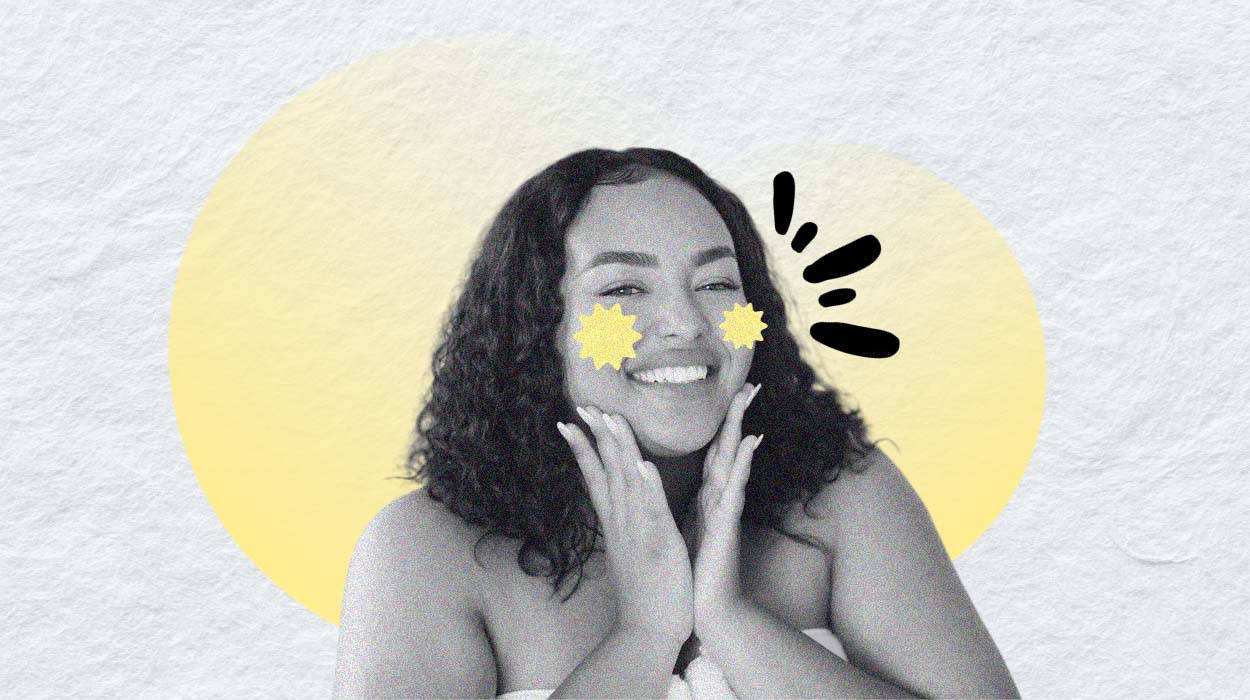 Expert's opinion
Expert's opinion
Expert's opinion
The article is a subjective view on this topic written by writers specializing in medical writing.
It may reflect on a personal journey surrounding struggles with an illness or medical condition, involve product comparisons, diet considerations, or other health-related opinions.
Although the view is entirely that of the writer, it is based on academic experiences and scientific research they have conducted; it is fact-checked by a team of degreed medical experts, and validated by sources attached to the article.
The numbers in parenthesis (1,2,3) will take you to clickable links to related scientific papers.
How To Plump Face After Weight Loss? 10 Ways Naturally In 2024

Soft, plump cheek facial muscles and soft skin are hallmarks of skin health and a youthful look. Losing weight in the face may have your own cheeks falling flat. How to get chubby cheeks faster?
As we age, we may lose weight on our faces, causing facial wrinkles, fine lines, and sometimes dark spots. Here are a few ways that you can restore your youthful appearance through natural facial rejuvenation. No fat transfer surgery is required.
How To Plump Up Face After Weight Loss?
What are some easy ways to prevent rapid facial sagging after losing weight in your face? How to get fatter cheeks? The following 10 natural methods may be able to help:
- Facial Yoga
- Vitamin C
- Eat Natural Sources of Procollagen
- Retinoids
- Aloe Vera Gel
- Limit Sugar
- Avoid Alcohol
- Never Smoke
- Sleep Adequately
- Always Wear Sunscreen
How To Get Chubby Cheeks?
Facial Yoga
Let’s dive into the details. First up: facial exercises. Who would have thought? This oft-cited study[1] concluded that thirty minutes of facial exercise a day for twenty weeks straight significantly improved the appearance of cheek fullness in twenty-seven trial participants.
Facial exercise works the same as ordinary exercise; you can sunken cheeks plump cheeks like you would plump your booty by subscribing to the appropriate workout routine targeting those muscles. Regular exercise boosts collagen production and enhances facial muscle tone, making it our foremost recommendation to get chubby cheeks naturally.
Vitamin C
This vitamin is particularly adept[2] at treating and preventing the effects of photoaging from the sun. This naturally-occurring substance, found in fruits like citrus, is a powerful antioxidant that is just as beneficial to eat as it is to use topically.
Vitamin C is one of the most important vitamins when it comes to natural collagen biosynthesis and can improve complexion and prevent tissue damage by stabilizing and cross-linking collagen molecules as they’re produced.
Eat Natural Sources Of Procollagen
Along with the aforementioned, your body also needs two additional compounds[3] in order to produce collagen: the amino acids glycine and proline. Both of these natural ingredients can be found in many common foods. A diet rich in healthy fats is one that will help you prevent weight loss in your facial tissue.
You can find proline in foods like egg whites, dairy products, asparagus, and seaweed. On the other hand, Glycine is associated with the gelatin of animal bones and skin—bone broth, bone marrow, and anything with genuine gelatin in it all boast this building block for chubby cheeks.
Retinoids
Retinoids are hugely popular topical skincare supplements; they won’t make you gain weight in your face, but, instead, will help your body kick-start[4] its collagen production and cellular turnover in the skin, cheekbones, and neckline.
Aloe Vera Gel
Aloe vera gel is typically used for topical burn treatments, but it’s also one incredibly potent anti-aging treatment. Treating your face daily[5] with aloe gel reduces the appearance of wrinkles and kicks your collagen and elastin production into overdrive.
This home remedy for chubby cheeks naturally is cost-effective and imposes no negative side effects. It might even be able to aid in local fat loss in the area of application.
Limit Sugar
We probably don’t have to tell you that too much sugar tends to make our faces (and our bellies!) sag in the most unfortunate way possible.[6]
This one is a no-brainer—limiting sugar improves your appearance and disposition and makes your face look fuller and more youthful to boot.
Avoid Alcohol
Alcohol abuse is the worst thing that you can do for yourself if you want to avoid loose skin and deep wrinkles later on. It dehydrates, causes you to store fat dysfunctionally, and makes your skin look awful.[7]
Avoiding alcohol will keep these vital systems and processes running smoothly and without incident, leading to more efficient collagen production, chubby cheeks, and more youthful facial skin.
Never Smoke
If there’s one piece of advice on this list to follow, it’s this one: never pick up a smoking habit, lest you risk damaging both your physical health and your youthful appearance.
Smoking greatly impedes[8] the cellular turnover process and prevents the skin from producing as much collagen as it would ordinarily, totally undermining any of the other efforts on this list. It’s like exercising after you’ve eaten too much—why not save yourself the trouble?
Sleep Adequately
Sure, we all feel like crap after a lousy night’s sleep. Did you know that the quality of your sleeping cycle can actually make a big difference in the appearance of your skin, though?
Sleeping poorly interferes with the skin barrier function. Sleeping enough improves the skin’s ability to repair itself[9] after being dehydrated or exposed to things like ultraviolet light. For this reason, it’s one of the most economical ways to combat aging skin and facial weight loss.
Always Wear Sunscreen
Finally, one of the most important preventative tips on this list. Little will keep your skin soft like protecting it from sun exposure, one of the surest ways to crow’s feet, fine lines, and other signs of aging.
To avoid this fate, stay indoors whenever possible. Always use sunscreen, even if you’re just driving somewhere. This won’t necessarily prevent you from losing weight on your face, but it will be able to mask some of the indicators of facial weight loss by keeping your skin plump, supple, and full of life.
What Causes The Skin To Lose Volume?
What causes weight loss changes in your face, exactly? It’s a complex and multi-faceted issue. In the same way that you may want to lose weight without losing breasts, many wish to tone their faces without missing out on the fullness of youthful, bouncy chubby cheeks naturally.
There are two overarching categories of influence when it comes to the appearance of your skin cells: intrinsic and extrinsic.[10] A few possible intrinsic aging factors include the following:
- Your genetics
- Metabolism at the cellular level
- Your hormones
- Your age
Some examples of extrinsic damage include:
- Damage from the sun
- Pollutants in the air
- Toxins and chemicals in your food
- Physical damage
- Weight gain or loss
- Illness
The skin grows on top of itself in layers, and each new layer characterizes the one that came before it. As we get older, each new layer loses elasticity, and our actual age begins to show. Wounds heal more slowly, our cell turnover rate becomes much slower, and we’re left with sagging skin, especially in highly mobile areas like around the eyes and under the chin.
It’s not only women who have to worry about this, either. A fat burner for men isn’t necessarily the answer, though all of the home remedies on this list apply to both men and women alike.
Can You Prevent Sagging Skin Naturally?
Your facial muscles are the same as any other in your body – with proper maintenance and stimulation, they’re not likely to atrophy noticeably, leaving you with skin that looks and feels great. Better skin might be one trip to the grocery store away.
+ 10 sources
Health Canal avoids using tertiary references. We have strict sourcing guidelines and rely on peer-reviewed studies, academic researches from medical associations and institutions. To ensure the accuracy of articles in Health Canal, you can read more about the editorial process here
- Alam, M., Walter, A.J., Geisler, A., Roongpisuthipong, W., Sikorski, G., Tung, R. and Poon, E. (2018). Association of Facial Exercise With the Appearance of Aging. JAMA dermatology, [online] 154(3), pp.365–367. Available at: https://www.ncbi.nlm.nih.gov/pubmed/29299598.
- Telang, P. (2013). Vitamin C in dermatology. Indian Dermatology Online Journal, [online] 4(2), p.143. Available at: https://www.ncbi.nlm.nih.gov/labs/pmc/articles/PMC3673383/
- Michalak, M., Pierzak, M., Kręcisz, B. and Suliga, E. (2021). Bioactive Compounds for Skin Health: A Review. Nutrients, [online] 13(1), p.203. Available at: https://www.mdpi.com/2072-6643/13/1/203
- Mukherjee, S., Date, A., Patravale, V., Korting, H.C., Roeder, A. and Weindl, G. (2006). Retinoids in the treatment of skin aging: an overview of clinical efficacy and safety. Clinical Interventions in Aging, [online] 1(4), pp.327–348. Available at: https://www.ncbi.nlm.nih.gov/labs/pmc/articles/PMC2699641/
- Tanaka, M., Misawa, E., Yamauchi, K., Abe, F. and Ishizaki, C. (2015). Effects of plant sterols derived from Aloe vera gel on human dermal fibroblasts in vitro and on skin condition in Japanese women. Clinical, Cosmetic and Investigational Dermatology, [online] p.95. Available at: https://www.ncbi.nlm.nih.gov/labs/pmc/articles/PMC4345938/
- Nguyen HP;Katta R (2015). Sugar Sag: Glycation and the Role of Diet in Aging Skin. Skin therapy letter, [online] 20(6). Available at: https://pubmed.ncbi.nlm.nih.gov/27224842/
- Liu, S.W., Lien, M.H. and Fenske, N.A. (2010). The effects of alcohol and drug abuse on the skin. Clinics in Dermatology, [online] 28(4), pp.391–399. Available at: https://pubmed.ncbi.nlm.nih.gov/20620755/
- Knuutinen, A., Kokkonen, N., Risteli, J., Vahakangas, K., Kallioinen, M., Salo, T., Sorsa, T. and Oikarinen, A. (2002). Smoking affects collagen synthesis and extracellular matrix turnover in human skin. British Journal of Dermatology, [online] 146(4), pp.588–594. Available at: https://pubmed.ncbi.nlm.nih.gov/11966688/
- Oyetakin-White, P., Suggs, A., Koo, B., Matsui, M.S., Yarosh, D., Cooper, K.D. and Baron, E.D. (2014). Does poor sleep quality affect skin ageing? Clinical and Experimental Dermatology, [online] 40(1), pp.17–22. Available at: https://pubmed.ncbi.nlm.nih.gov/25266053/
- Ganceviciene, R., Liakou, A.I., Theodoridis, A., Makrantonaki, E. and Zouboulis, C.C. (2012). Skin anti-aging strategies. Dermato-Endocrinology, [online] 4(3), pp.308–319. Available at: https://www.ncbi.nlm.nih.gov/labs/pmc/articles/PMC3583892/



